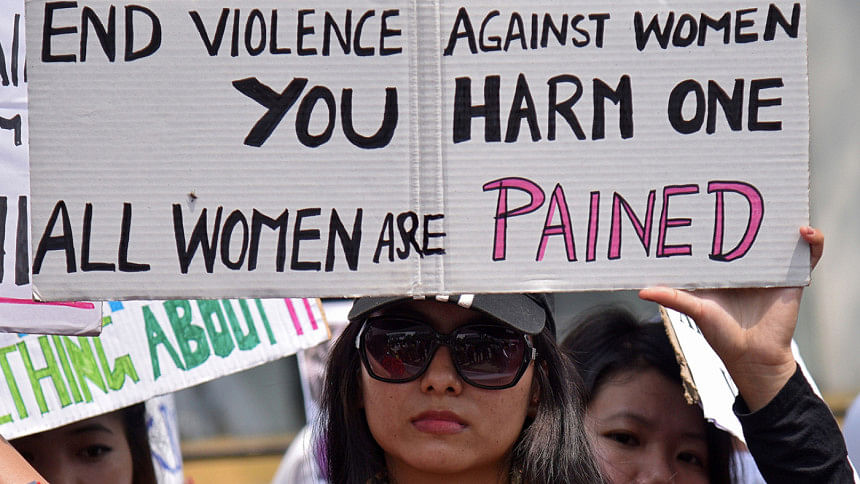Open letter sent to Modi condemning rape incidents

A group of 637 academics in India and abroad have written an "open letter" to Indian Prime Minister Narendra Modi, voicing "deep anger and anguish" at recent incidents of rape in Jammu and Kashmir and Uttar Pradesh states.
The letter also alleged that the Modi government was "not doing enough to stop the pattern of repeated targeted attacks on minority religious communities, Dalits, tribals and women," reports our New Delhi correspondent.
"We send you this letter... so that we are not guilty of silence and so that callousness and cowardice might finally draw the line at the broken body of a little girl and the rape of a young woman", said the letter.
As public anger continued over recent incidents of rape, the government on Saturday approved an ordinance toughening laws and punishment relating to crimes against women, including death penalty for rapists of children.
Among the academics who signed the "open letter" are 200 teachers and scholars at universities in the United States, Britain and Australia.
The letter came a few days after 49 retired Indian bureaucrats had written a letter to Modi expressing their concerns over a "terrifying state of affairs" and at the "decline in the secular, democratic, and liberal values".
In their letter, the academics expressed their "deep anger and anguish" at the efforts to protect the perpetrators of the rapes in Jammu and Kashmir's Kathua and Uttar Pradesh's Unnao.
Much of the public anger triggered by the incidents in Unnao and Kathua were directed at leaders of BJP whose legislator Kuldeep Singh Sengar was arrested in connection with the Unnao incident.
Last week, Modi denounced the Unnao and Kathua incidents and said the culprits will be brought to justice.
Citing a series of incidents of mob lynching that had taken place since 2015 including deaths linked to cow vigilantism, the academics alleged all these attacks had taken place in BJP-ruled states.
However, they said, "this is not to associate violence exclusively with your party and with state governments presided over by your party. But there is an undeniable association with the ruling dispensation."

 For all latest news, follow The Daily Star's Google News channel.
For all latest news, follow The Daily Star's Google News channel. 



Comments